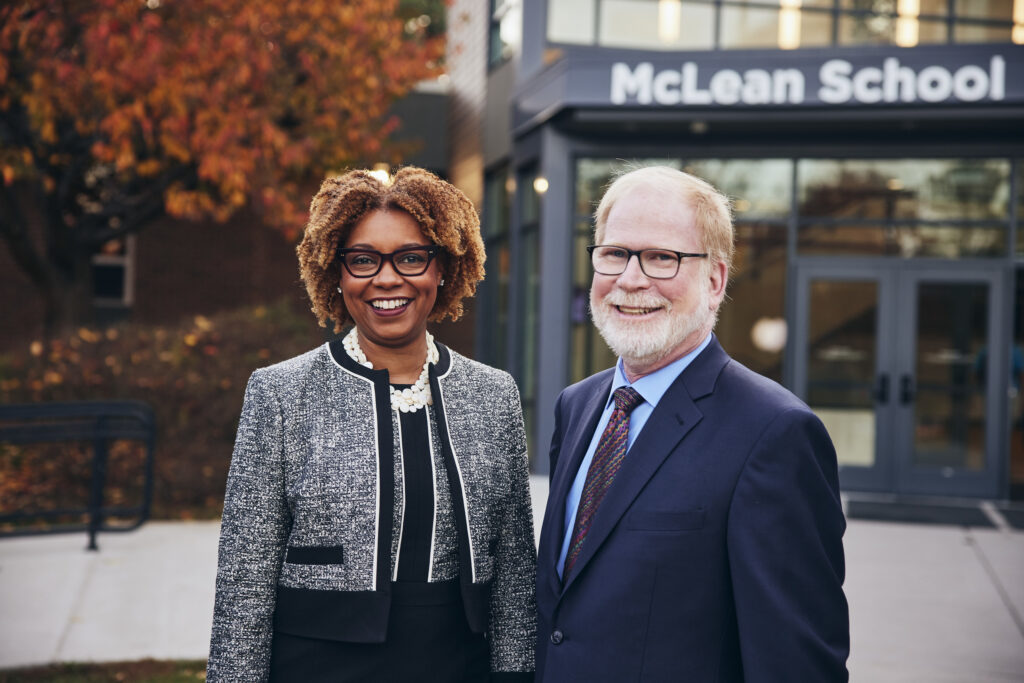Melissa Gray-Hughes and Jeff Berman, Co-Heads of School 2024
The Power of Relationships

Key factors for school success include academic preparation, self-awareness, self-advocacy, positive peer connections, and a supportive family. Tying this all together are relationships that develop out of an environment in which teachers and their students share trust, information, experiences, and goals. In many ways, this relationship building is the most important factor.
At McLean, we prioritize getting to know not only a student’s learning strengths and challenges – where they are in terms of knowledge and abilities – but also who they are as individuals. What makes them tick. We believe, and our research underscores, that positive relationships are the key to unlock learning potential and possibility. It’s this combination of being supported and being seen–really seen–that’s as much a part of our program as math and reading, service learning, and art.
It starts with creating an environment where students feel safe asking questions and being their authentic selves, free from judgment and fear of failure. This is critical to, not separate from, academic success. Our small classes help foster a culture of respect between teachers and their students and among peers, and we know from experience that children want to do and be their best for those they respect. This creates a cherished, trusted space for difficult and deep conversations, whether about social justice issues, world events, or everyday concerns. It allows for an intimacy that’s hard to come by in larger settings.
Community engagement and service learning is another important way of building connections and relationships; taking part in clubs, activities, and events is grounding and helps to build a sense of purpose and belonging. Our teachers are invested, involved, and lead by example. All of this is self-reinforcing, because when students see others–peers and adults alike–modeling vulnerability, participation, compassion, healthy risk-taking, and more, they are inclined to do the same. This is further strengthened by our mindfulness program, which fortifies a student’s sense of well-being and fosters the growth mindset that is fundamental to learning.
Relationships like the ones you’ll find at McLean are about more than just creating quality environments for today; they’re also good predictors of positive future outcomes. This includes college persistence–not just getting into a school, but also the ability to stay there, flourish, and graduate. At McLean, nearly 100 percent of students with a B average and above finish a four-year college program, compared to just one-third of such students nationwide. Because they’ve had a lot of modeling, practice, and positive reinforcement, McLean students heading off to college have the skills and confidence they will need to foster positive relationships with peers and professors, advocate for themselves as needed, and thrive.
Strong Relationships Support Positive Outcomes
Strong, positive relationships can bring out the best in students–and at the same time, offer a framework for understanding when a student is struggling and finding the right support. Because when the going gets tough–whether that’s on a personal level or with the world at large, you want to know your school is a safe place to take risks, find support and work through any issues. At McLean, relationships are fundamental to our Core Values, which we take very seriously. They are more than words on a page. They are well-integrated into each day and every experience, literally part of the atmosphere. We hear it from families all the time, that when they walk through our doors they feel a strong sense of connection–and we know what they mean because we feel it, too.
– Melissa Gray-Hughes and Jeff Berman, Co-Heads of School 2024